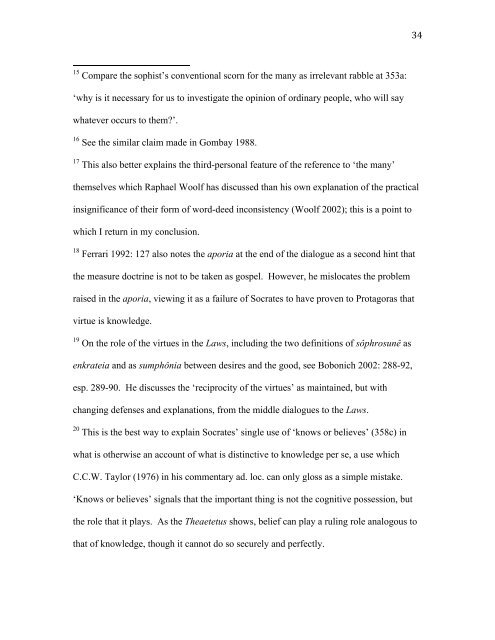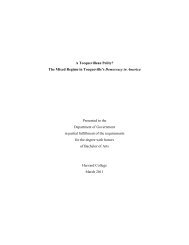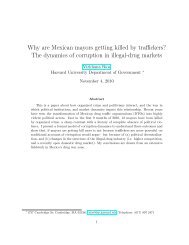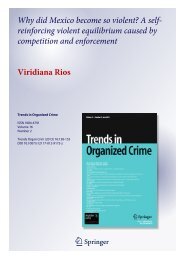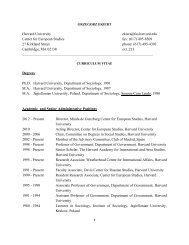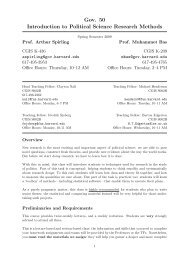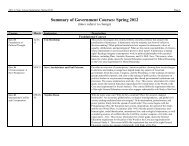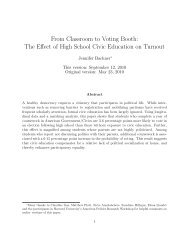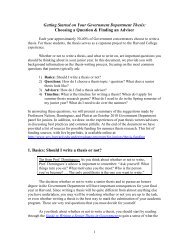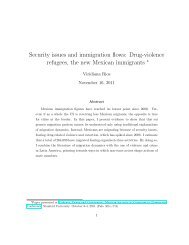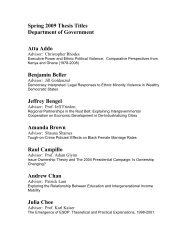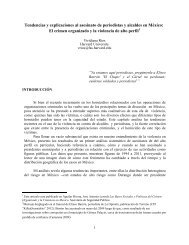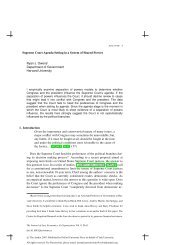1 Harvard University Political Theory Colloquium For 11 March 2010 ...
1 Harvard University Political Theory Colloquium For 11 March 2010 ...
1 Harvard University Political Theory Colloquium For 11 March 2010 ...
Create successful ePaper yourself
Turn your PDF publications into a flip-book with our unique Google optimized e-Paper software.
34 <br />
<br />
15 Compare the sophist’s conventional scorn for the many as irrelevant rabble at 353a:<br />
‘why is it necessary for us to investigate the opinion of ordinary people, who will say<br />
whatever occurs to them?’.<br />
16 See the similar claim made in Gombay 1988.<br />
17 This also better explains the third-personal feature of the reference to ‘the many’<br />
themselves which Raphael Woolf has discussed than his own explanation of the practical<br />
insignificance of their form of word-deed inconsistency (Woolf 2002); this is a point to<br />
which I return in my conclusion.<br />
18 Ferrari 1992: 127 also notes the aporia at the end of the dialogue as a second hint that<br />
the measure doctrine is not to be taken as gospel. However, he mislocates the problem<br />
raised in the aporia, viewing it as a failure of Socrates to have proven to Protagoras that<br />
virtue is knowledge.<br />
19 On the role of the virtues in the Laws, including the two definitions of sôphrosunê as<br />
enkrateia and as sumphônia between desires and the good, see Bobonich 2002: 288-92,<br />
esp. 289-90. He discusses the ‘reciprocity of the virtues’ as maintained, but with<br />
changing defenses and explanations, from the middle dialogues to the Laws.<br />
20 This is the best way to explain Socrates’ single use of ‘knows or believes’ (358c) in<br />
what is otherwise an account of what is distinctive to knowledge per se, a use which<br />
C.C.W. Taylor (1976) in his commentary ad. loc. can only gloss as a simple mistake.<br />
‘Knows or believes’ signals that the important thing is not the cognitive possession, but<br />
the role that it plays. As the Theaetetus shows, belief can play a ruling role analogous to<br />
that of knowledge, though it cannot do so securely and perfectly.


